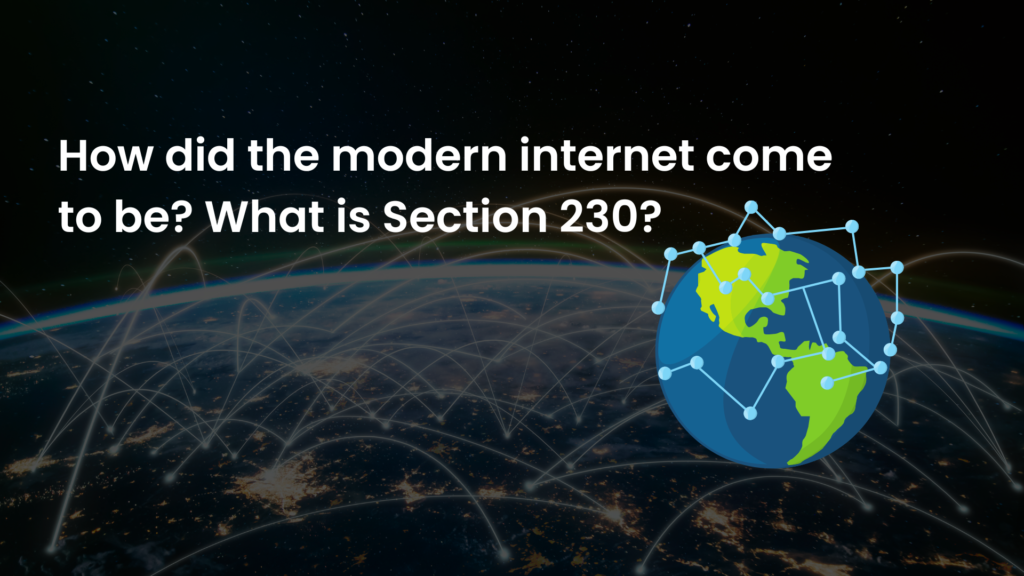Twenty-six words buried into a 1996 telecommunications modernization bill which allowed businesses like Facebook, Twitter, and Google to develop into the behemoths they are today.

Gonzalez v. Google, a case before the United States Supreme Court this week, questions this statute, namely whether digital corporations are accountable for the content uploaded on their platforms.
The Supreme Court will consider whether the family of an American college student slain in a terror assault in Paris may sue Google, which owns YouTube, on the grounds that the video platform’s recommendation algorithm assisted extremists in spreading their message.
A second case, Twitter v. Taamneh, however, focuses on responsibility as well, but on different grounds.The outcomes of these lawsuits have the potential to change the internet as we know it. Section 230 is not going away lightly. Nevertheless, if it is, online speech might be substantially altered.
If a news site incorrectly labels you a con artist, you can sue the publication for libel. But if someone writes something on Facebook, you can only sue the individual who posted it.
That’s because, according to Section 230 of the Communications Decency Act of 1996, “no supplier or user of an interactive computer service will be considered as the publisher or speaker of any material given by another information content provider.”
The legal word protects companies that can host trillions of communications from being sued into oblivion by everyone who believes they have been injured by something posted by someone else – whether their complaint is valid or not.
Lawmakers on both sides of the aisle have argued, for various reasons, that Twitter, Facebook, and other social media companies have exploited that immunity and should lose it — or, at the very least, have to earn it by meeting government standards.
Section 230 also permits social platforms to control their services by eliminating posts that, for instance, are vulgar or violate the services’ own standards, so long as they are operating in “good faith.”
The measure’s origins may be traced back to the 1950s, when bookshop owners were held accountable for selling books containing “obscenity, profanity, or profanity.” “which the First Amendment does not protect. One case was finally heard by the Supreme Court, which ruled that it had a “chilling effect.” “to hold someone accountable for the content of another.
According to Jeff Kosseff, author of “The Twenty-Six Words That Built the Internet,” plaintiffs had to establish that bookshop owners were aware they were selling obscene books “Section 230 is the subject of a book.
Flash forward a few decades to when commercial internet services like CompuServe and Prodigy were taking momentum. Both featured online forums, but CompuServe elected not to control them, whereas Prodigy did in order to project a family-friendly image.
CompuServe was sued, but the case was dismissed. Prodigy, on the other hand, got himself into trouble. According to the court in their case, “they exert editorial control – so you’re more like a newspaper than a newsstand.” Politicians worried that result would discourage newly forming internet companies from moderating. Thus, Section 230 was born.
“Today, it shields both against liability for user posts and from liability for any claims for content filtering.”
“The major activity we engage in on the internet is communication. We communicate via email, social media, and message boards, but we communicate. And a lot of those interactions are made possible by Section 230, which states that whoever allows us to communicate to others is not accountable for what we say, “said Eric Goldman, a professor of internet law at Santa Clara University. “The Supreme Court might easily upset or abolish that basic notion and rule that the persons permitting us to communicate to each other are accountable for those interactions. Then they won’t let us talk to one other any longer.”
“If platforms were not immune under the law, then they would not risk the legal liability that could come with hosting Donald Trump’s lies, defamation, and threats,” said Kate Ruane, former senior legislative counsel for the American Civil Liberties Union who now works for PEN America.
Another possibility: Facebook, Twitter, YouTube and other platforms could abandon moderation altogether and let the lowest common denominator prevail.
Such unmonitored platforms, like 8chan, which was notorious for violent and extreme content, may rapidly become overrun by trolls.
Any changes to Section 230 are likely to have a global impact on online expression.
“The rest of the world is clamping down on the internet quicker than the United States, “According to Goldman. “Therefore we’re a step behind the rest of the world in terms of internet censorship. And the question is whether we can survive on our own.”